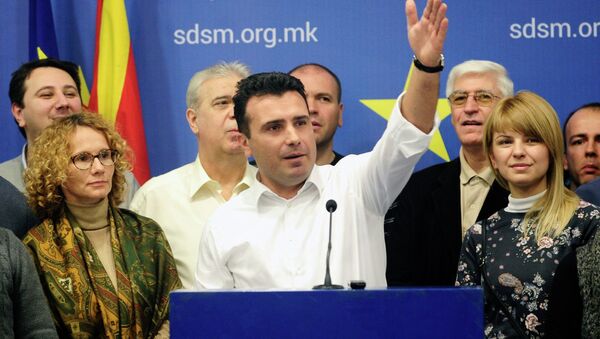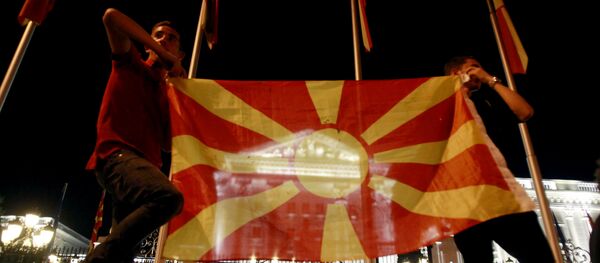On Sunday, the referendum on the deal to change the name of Macedonia, officially known as the Former Yugoslav Republic of Macedonia, to the Republic of North Macedonia was held in the country. According to the State Election Commission, over 91 percent of voters supported renaming the country under the deal with Greece, while over five percent voted against. The referendum, however, failed to secure the necessary 50-percent turnout in order to make the vote valid and after counting data from over 91 percent of polling stations, the turnout amounted to 36.36 percent.
"This is a serious contribution, a stone in the foundation of the future of our Macedonia. Over 650,000 citizens voted at the referendum today. Over 90 percent of those voted supported [changing the name] and they believe that Macedonia should accept an agreement with Greece and become a member of NATO and the European Union," Zaev said at a press conference.
EU Commissioner for European Neighborhood and Enlargement Negotiations Johannes Hahn said commenting on the referendum results that this vote showed Macedonian citizens' commitment to EU integration and urged the political leaders to respect this decision.
"Referendum in [Macedonia]: I congratulate those citizens who voted in today's consultative referendum and made use of their democratic freedoms. With the very significant "yes" vote, there is broad support support to the Prespa Agreement + to the country's Euroatlantic path. I now expect all political leaders to respect this decision and take it forward with utmost responsibility and unity across party lines, in the interest of the country," Hahn said on Twitter.
The country’s new constitutional name will open the way for Macedonia’s accession to the European Union and NATO, which has long been blocked by Athens over concerns that the neighboring country might have territorial claims to Greece’s own region of the same name.




